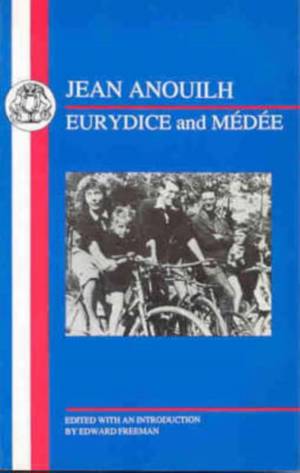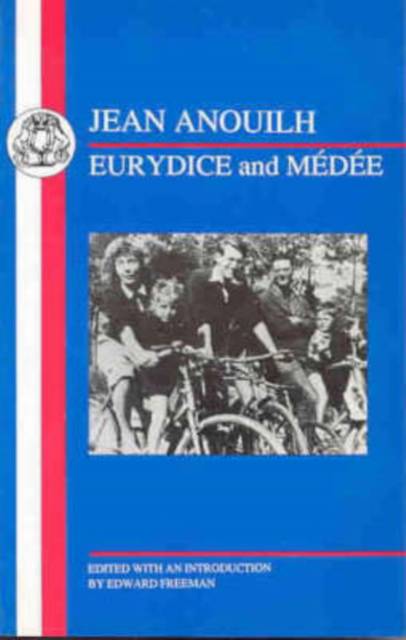
- Afhalen na 1 uur in een winkel met voorraad
- Gratis thuislevering in België vanaf € 30
- Ruim aanbod met 7 miljoen producten
- Afhalen na 1 uur in een winkel met voorraad
- Gratis thuislevering in België vanaf € 30
- Ruim aanbod met 7 miljoen producten
Omschrijving
Throughout his long and prolific career as one of France's leading modern dramatists, Jean Anouilh has been fascinated by the theme of the fragility of youthful idealism. Is it possible for the illusions of adolescence to accommodate the compromises and hard truths of middle age? Can love survive in an absolute form, as the young may be led to hope by some of the most venerable fables of European literature and of Greek mythology? Indeed can love survive in any form whatsoever? Modern French theatre in particular has been drawn to Greek myth as a vehicle for an examination of eternal human dilemmas. Anouilh joins Cocteau, Giraudoux and Sartre at the head of a large group of French dramatists who used Greek themes in this way from the 1920s onwards. The particular theme that Anouilh explores is the anarchy created by the conflict between ego and Eros. Eurydice and Médée, although somewhat different in style (and instructively so for the student of Anouilh's theatre), may be regarded as complementary studies in the neo-Greek vein of the key Anouilh theme: 'Il y a l'amour bien sûr. Et puis il y a la vie, son ennemie.'Eurydice and Médée represent two powerful treatments of this theme, which is central not only to Anouilh's work, but also, as the editor suggests in his introduction, to the personal life of this notoriously private author.
Specificaties
Betrokkenen
- Auteur(s):
- Uitgeverij:
Inhoud
- Aantal bladzijden:
- 212
- Taal:
- Engels
- Reeks:
Eigenschappen
- Productcode (EAN):
- 9781853993657
- Verschijningsdatum:
- 1/01/1998
- Uitvoering:
- Paperback
- Formaat:
- Trade paperback (VS)
- Afmetingen:
- 139 mm x 214 mm
- Gewicht:
- 331 g

Alleen bij Standaard Boekhandel
Beoordelingen
We publiceren alleen reviews die voldoen aan de voorwaarden voor reviews. Bekijk onze voorwaarden voor reviews.











